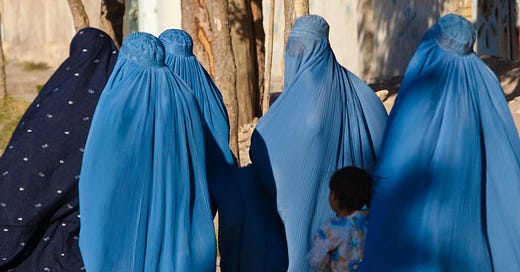Introduction
The story of women's rights in Afghanistan is one of significant highs and lows. In the late 20th century, especially the 1960s and 1970s, Afghan women experienced notable progress. They had better access to education and jobs and were active in public life. However, this progress was disrupted after the Soviet invasion.
When the Taliban took…
Keep reading with a 7-day free trial
Subscribe to Grumpy Combat Veteran to keep reading this post and get 7 days of free access to the full post archives.



